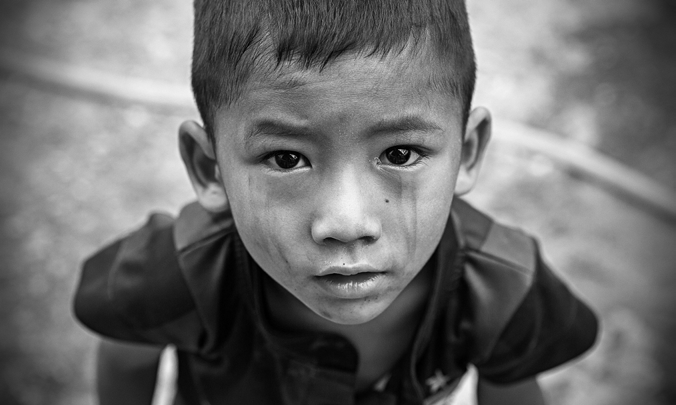The current pandemic has pushed governments, policymakers, and academicians worldwide to rethink possibilities of designing new financing instruments for socioeconomic development. The COVID-19 pandemic has brought unprecedented crisis to the world economy, mostly by affecting people’s well-being. Inevitably, countries rushed to launch elaborate economic relief plans to sustain the quality of life of their citizens. Relief- packages were announced to maintain the economy’s resilience to manage risk to the financial and budget stability and mitigate the social risks on their respective citizens.
Chronic debt trap and unequal distribution of wealth has limited public authorities’ margin to finance these programmes. Within the last forty years, the increase in the top income shares was building up in parallel to a rise in the government and household borrowings. The vicious circle of lending and refinancing led most of the public and private revenues to be used in refinancing rather than productive economic activities. This explains the reason for a depressed overall economic output. Consequently, governments strived to develop new ways to sustain their populations’ well-being under tight budget margins.
During the current pandemic conditions, the first step is to sustain the current business environment and the well-being of Muslims. To attain financial flexibility, governments can use GDP-linked sukuk as a sustainable instrument for debt relief, and to convert debts, from failing businesses and households, into equity repayments based on the country’s GDP performance. Furthermore, growth-linked financial instruments have also shown to be useful tools to mitigate economic downturn risk. These securities are similar to stocks in the sense that they have equity-like features.
“FINANCING FROM ZAKAT AND NEWLY CREATED WAQF FUNDS SHOULD BE INVESTED IN EDUCATION TO ENCOURAGE THE DEVELOPMENT OF ENTREPRENEURIAL MINDSET AMONG MUSLIM YOUTH.”
After the debt relief programme, the next step is to support the purchasing power of people to sustain their well-being. Islamic social finance offers multiple tools in this regard, such as waqf and zakat, typically used for poverty alleviation and by extension to help regain economic recovery. The current crisis certainly requires intervention during the containment and recovery phase. Both phases demand significant financing efforts from public authorities to mitigate the pandemic’s fallout on citizens and firms alike.
To finance various safety net measures the governments, while temporarily setting aside conventional fiscal tools, can issue sukuk linked with short-term cash waqf, to mobilise social and benevolent funds below market rates. Beside providing funds to ensure a demand-backed policy through income distribution, it might also support the small and medium-sized enterprises’ (SMEs) financing programmes for enhanced business activities. Ultimately, this financing instrument can play a vital role both in the containment phase by supporting health-related businesses and in the recovery phase by supporting businesses and households.
The containment phase is usually linked with high social vulnerability resulting in high poverty rate. Islamic social finance can mobilise zakat to mitigate the severe impact of the pandemic on vulnerable households. The literal meaning of the term zakat is “that which purifies.” It is an obligatory religious charity liable on those who meet the criteria. In the event of a humanitarian crisis and unexpected socio-economic downturn, zakat can be offered to households who meet the criteria of receiving zakat. It has also been found to absorb high unemployment rates can play a significant role in the provision of food security programme during an emergency. Many studies have emphasised the role zakat plays in the redistribution system for economic empowerment. Similarly, zakat funds can be used for short-term support of SMEs. It has proved to be positively correlated with increase in profitability. In other cases, zakat can play an advanced economic role to support long-term investment for socio-economic development, especially for under-developed countries.

Beside the conventional tools of zakat and waqf, social innovation can also help secure financing for the economic support and recovery. Social Impact Sukuk can be proposed as an instrument to finance small projects for either poverty alleviation or small-income generating activities. The underlying feature of social impact sukuk is a partnership between NGOs and investors. Under this arrangement, the NGOs steer projects based on their expertise in public services, while investors fund the project in return of a profit determined in the light of the projects’ goals. It enables the investors to combine their profit goals and social responsibility to mitigate the pandemic’s adverse effects. Mudaraba can prove to be the most suitable contract to implement social impact sukuk. Mudaraba-based contracts, on the other hand lessen the moral hazard problem that could plague most social financing contracts like performance-based contracts and social impact bonds.
Notwithstanding the emphasis on the role of social instruments like waqf, zakat and other hybrid instruments in poverty alleviation, the real challenge lies in mobilising these instruments to start a development process in Muslim countries.
However, Muslim countries’ economic goal should not be directed only at overcoming poverty through necessary socioeconomic instruments. Efforts should be invested in changing the new generation’s business mindset for an entrepreneurial revolution. Hence, zakat and awqaf should be used for the development of sustainable educational infrastructure.
In the Post COVID-19 recovery phase, the real challenge would be to build a resilient economic system for Muslim countries. The pandemic has exposed Muslim countries’ vulnerability of depending on foreign expertise and industrial output that turned out to be a threat endangering their national security. Therefore, financing from zakat and newly created waqf funds should be invested in education to encourage the development of an entrepreneurial mindset among Muslim youth. Though a long-term process, the change in mindset will help build a self-reliant and productive future generation.
To summarise, ideally, all instruments explained above should be jointly institutionalised and integrated into each country’s fiscal policy. It will result in the development of safety nets and pro-poor expenditures.



